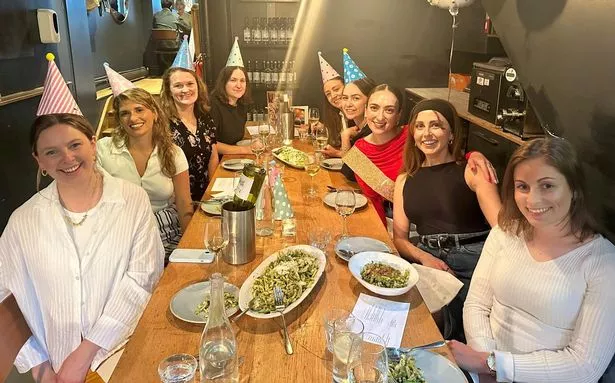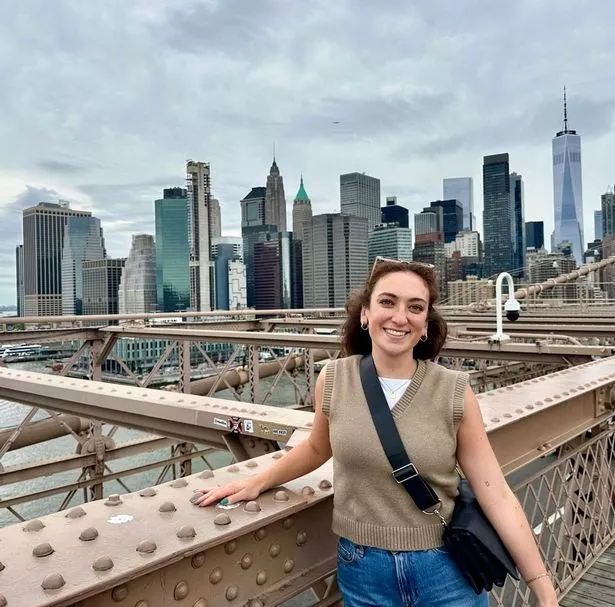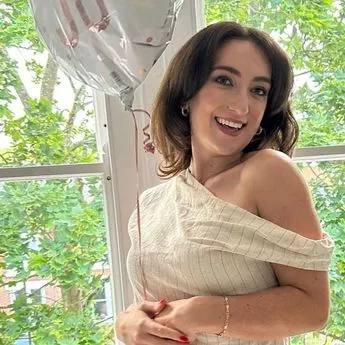A well-travelled investment banker thought she’d contracted an exotic infectious disease but discovered it was actually a brain tumour.
Bella Depreli had her extended 30th birthday celebrations scuppered after being diagnosed with a brain tumour four months later. She had a year of fun activities lined up to mark her milestone birthday – including a trip to India, a spa break plans, and celebrating her friends birthdays.
She started the year in Costa Rica before going to Mighty Hoopla festival, in Brockwell Park, London, with friends to celebrate turning 30 on June 30. But after returning home to London she had a seizure out-of-the-blue in August while at a shopping centre.
She was rushed to St Thomas Hospital, Lambeth, where doctors initially thought Bella was suffering with neurocysticercosis – an infectious disease often contracted in exotic countries. But a scan revealed a mass on her brain – which led to her being diagnosed with brain cancer.
Just weeks later, Bella had an operation to remove the 1.2cm tumour. It isn’t the first time her family has been impacted by disease after Bella lost her big sister, Carmen, 10, to cancer in 2003.

(
Bella Depreli/Brain Tumour Research © SWNS)
Bella is now undergoing six weeks of intense radiotherapy and chemotherapy treatment – and refuses to let her tumour derail her plans and will still plans on continuing with her jet-setting lifestyle after treatment. Bella, a vice president at UBS, from Dulwich, southeast London, said: “It was a real shock to be diagnosed with brain cancer.
“Apart from the seizure, I felt and still feel OK in myself. I remember waking up on the floor of the shopping centre in Battersea not knowing what had happened and laughed in disbelief when my friend told me I’d had a seizure.
“Despite my family history, you never think at this age you will be diagnosed and telling friends and family is the hardest.” Bella was just nine years old when she lost her sister, Carmen, to the same disease more than 20 years ago.
Doctors suspected Bella was suffering with neurocysticercosis at first. Bella said: “They did an initial MRI and the radiologist had suggested what they could see looked more like parasite which is common in countries around the world, and I had done fair bit of travelling so that added to it.

(
Bella Depreli/Brain Tumour Research © SWNS)
“But then to find out it was a tumour was very shocking. My mum died of breast cancer when I was younger and during an appointment with the oncologist, my dad laid out the extent of our full family history. They couldn’t tell us if there was a link.”
An avid traveller, Bella has delayed her remaining birthday plans – including a trip to India – due to her diagnosis but says she’ll go as soon as she’s well enough. She has chosen not to be told what type of cancer she is suffering from, and is instead focussing on her fundraising efforts.
Bella is walking 99 Miles in November in aid of Brain Tumour Research and has already raised more than £7,000 for the charity. Bella said: “I’ve always been active and when I saw the challenge, I thought, I could do that distance in a month.

(
Bella Depreli/Brain Tumour Research © SWNS)
“Not many people realise how little money is invested in research into brain tumours which is why supporting Brain Tumour Research is so important to me. I don’t want to be just another statistic – I’m maintaining hope for myself and others who are diagnosed with this disease.”
Brain tumours kill more women under 35 than breast cancer, yet just 1 per cent of the national spend on cancer research has been allocated to brain tumours since records began in 2002, according to Brain Tumour Research. Charlie Allsebrook, community development manager at Brain Tumour Research, said: “Bella’s story is a reminder that brain tumours are indiscriminate – they can affect anyone at any age.
“We are particularly shocked to learn of her sister’s death decades earlier. If we are to understand the disease, we must invest in research into brain tumours. It’s only with the support of people like Bella – who is taking on one of our Facebook challenges – that will help us closer to find kinder treatments and eventually a cure for all types of brain tumours.”
This post was originally published on here







